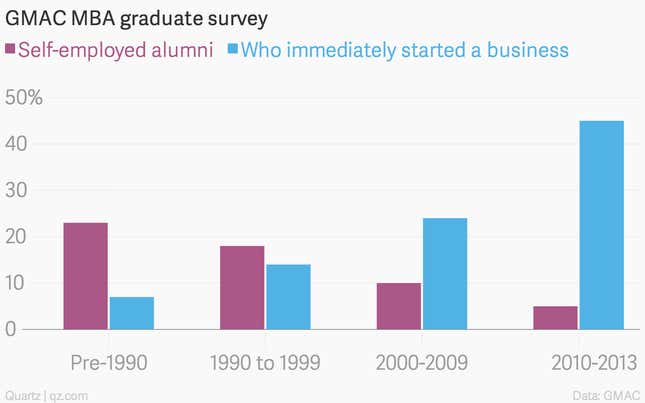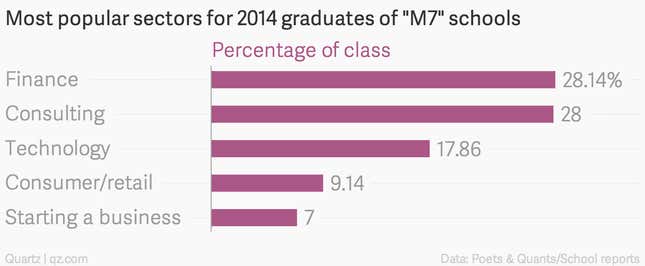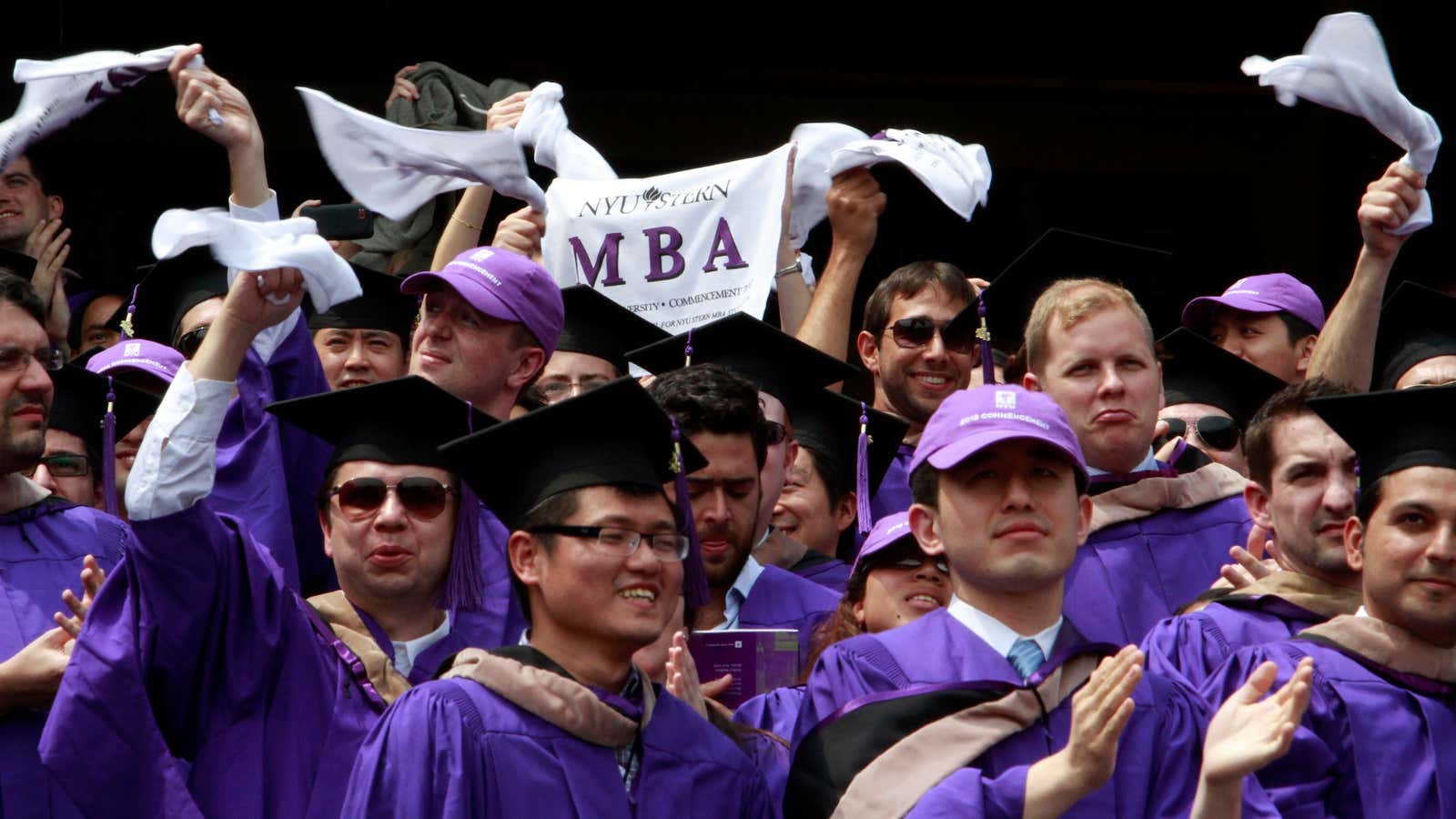The notion that business school can be a launching pad for budding entrepreneurs becomes catchier with every dinky startup that becomes a multibillion-dollar business. So catchy, in fact, that MBA programs are falling over themselves to convince students that their campuses are basically souped-up startup camps. But in reality, launching your own company out of business school is rarer than you might think.
A frequently cited survey from the makers of US business school entrance exam the GMAT found that more global MBA graduates are starting businesses right out of school. A less-frequently cited finding from the survey is that most recent graduates still work for somebody else. In the chart below, the pink column represents the total percentage of self-employed business school graduates worldwide. The blue column is the subset of that group that started a company right after graduating:

Over the past few decades the number of American youth who own their own business has declined: 3.6% of households headed by people under 30 (paywall) own stakes in private companies, compared with 6.1% in 2010 and 10.6% in 1989.
Behind the decline is a rise in MBA tuition, which increases the financial risks of starting a business that can become profitable quickly enough to pay off student loans. A compounding factor is that business school students tend to be risk-averse. Many follow the well-trodden path from elite university to elite consulting or finance firm to elite business school, and then back into finance or consulting.
Even though an increasing number of graduates are heading into tech, more than half of 2014 alumni at the most prestigious US business schools (otherwise known as “M7” schools) still went into finance or consulting:

For all the marketing MBA programs do to lure students interested in startups, the fact is that successful high-growth startups are substantially more likely to be launched by older entrepreneurs with business experience. The average age of successful high-growth startup founders is 40, according to research by Vivek Wadhwa, an academic and tech entrepreneur, and the Kauffman Foundation.
What’s more, research finds that most entrepreneurs come from established firms, and that the further a business deviates from a founder’s prior firm in size and focus, the less likely it is to succeed.
Other research on Harvard Business School students found that more contact with classmates who were former entrepreneurs appeared to discourage students from pursuing a startup. The research suggests that the better informed students are about the challenges of being an entrepreneur, the less likely they are to leap into it. That kind of warning might just be worth the $150,000 price tag.
